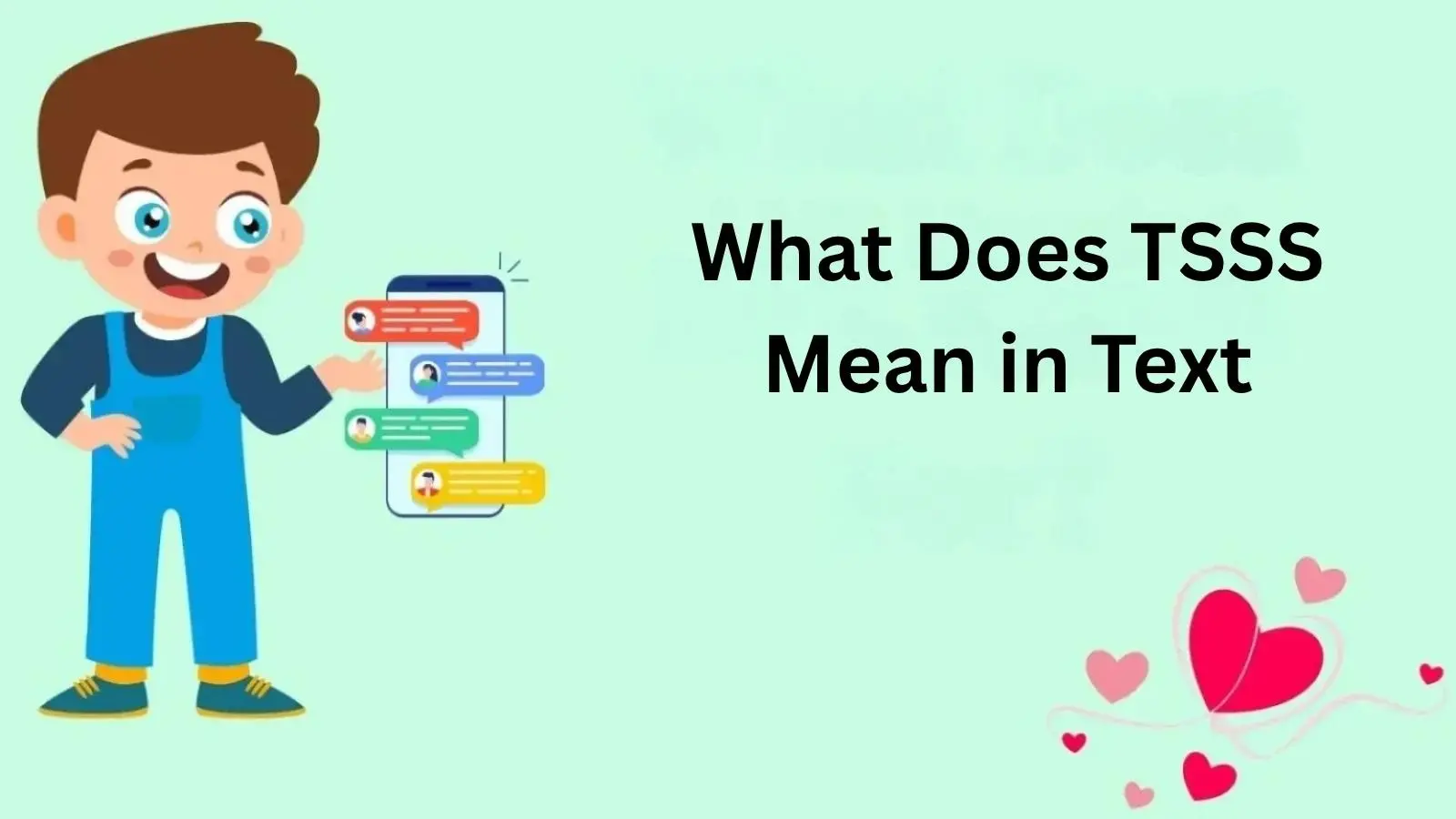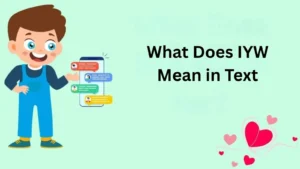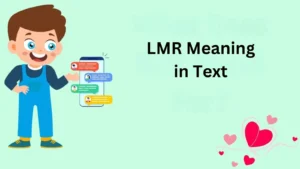Ever got a text with “TSSS” and wondered what it means? You’re not alone! In today’s fast-paced digital world, new slang pops up all the time. TSSS is one of those quirky terms you might see in texts, social media, or gaming chats. It’s short, snappy, and carries a vibe that’s hard to pin down at first.
Understanding TSSS can help you keep up with friends, connect in online communities, or even avoid awkward missteps in conversations. Whether you’re texting a buddy, scrolling through Twitter, or gaming online, knowing what TSSS means makes you part of the in-crowd.
This blog dives into its meaning, origins, and how to use it right. Let’s unravel the mystery of TSSS and make your chats more fun and confident!
Definition & Meaning
TSSS is a slang term often used in texting to mimic the sound of disapproval, sass, or a playful scolding. Think of it as the text version of someone clicking their tongue or saying “tsk tsk.” It’s a way to express mild judgment, teasing, or disbelief without being too serious.
- Primary Meaning: A playful or sarcastic way to say, “Oh, come on!” or “Really?”
- Tone: Light, cheeky, or mildly scolding, depending on context.
- Usage: Common in casual texts, social media, and gaming chats.
Examples of TSSS in Use
- Friend teasing:
- Friend: “I forgot my lines for the play again.”
- You: “TSSS, you had one job!”
- Sarcastic comment:
- Friend: “I’m gonna win this game easy.”
- You: “TSSS, sure you will.”
TSSS is versatile and works in fun, informal settings. It’s not meant to offend but to add a playful nudge to the chat.
Background & History
The term TSSS comes from mimicking the sound of tongue-clicking, a gesture used worldwide to show disapproval or teasing. Its origins are hard to trace precisely, but it likely started as an onomatopoeia in spoken language before jumping to text.
- Early Roots: Tongue-clicking sounds like “tsk tsk” have been used for centuries across cultures to express mild scorn or pity.
- Digital Shift: As texting grew in the early 2000s, people started typing TSSS to capture that sound in chats.
- Pop Culture Boost: Memes and social media platforms like Twitter and TikTok helped spread TSSS in the 2010s, especially among younger users.
Today, TSSS is common in English-speaking online spaces, especially in casual or gaming contexts. It’s a quick way to add personality to a message without typing a long response.
Usage in Various Contexts
TSSS shines in informal settings. Here’s how it’s used across different platforms and situations:
Texting
In personal chats, TSSS adds a playful or teasing tone.
- Example:
- Sarah: “I ate the last slice of pizza.”
- Mike: “TSSS, you’re savage!”
Social Media
On platforms like Twitter or Instagram, TSSS often responds to bold claims or funny posts.
- Example:
- Tweet: “I’m never late to anything!”
- Reply: “TSSS, we all know that’s a lie.”
Gaming
In gaming chats, TSSS is used to tease teammates or rivals.
- Example:
- Player 1: “I totally carried the team!”
- Player 2: “TSSS, you died first!”
Casual Conversations
In face-to-face chats, people might say “TSSS” out loud to mimic the sound, but it’s more common in text.
Key Point: Always match TSSS to the vibe of the conversation to avoid sounding too harsh.
Common Misconceptions & Clarifications
Some people misread TSSS as rude or overly critical, but it’s usually lighthearted.
- Misconception 1: TSSS is always negative.
- Clarification: It’s often playful or teasing, not mean-spirited.
- Misconception 2: TSSS is the same as “SMH” (shaking my head).
- Clarification: TSSS is lighter and more about teasing, while SMH shows stronger disapproval.
- Misconception 3: It’s okay in formal settings.
- Clarification: TSSS is too casual for professional emails or serious talks.
Context Matters: If used with someone who doesn’t know the term, it might confuse them. Always consider your audience.
Similar Terms & Alternatives
If TSSS isn’t quite right, here are some related terms:
- Tsk tsk: The original sound, used in person or text.
- Pfft: A dismissive sound, less scolding than TSSS.
- SMH: Stronger disapproval, often serious.
- Lol: A general laugh, less specific than TSSS.
Comparison Table
| Term | Meaning | Tone | Best Used In |
| TSSS | Playful scolding or teasing | Light, cheeky | Texting, gaming |
| Tsk tsk | Mild disapproval or pity | Neutral | Casual chats |
| Pfft | Dismissive or skeptical | Sarcastic | Social media |
| SMH | Strong disapproval or disbelief | Serious | Texting, social media |
How to Respond to TSSS
Responding to TSSS depends on the vibe you want to give off. Here are some styles:
Casual Response
- Example:
- Friend: “TSSS, you forgot our plans?”
- You: “Oops, my bad!”
Funny Response
- Example:
- Friend: “TSSS, you lost again?”
- You: “Yeah, my controller’s cursed!”
Professional Response
If TSSS pops up in a semi-formal chat, keep it light but polite.
- Example:
- Colleague: “TSSS, late again?”
- You: “Haha, traffic got me this time.”
Privacy-Conscious Response
If you don’t want to engage, pivot politely.
- Example:
- Friend: “TSSS, you didn’t reply all day!”
- You: “Been super busy, what’s up?”
Tip: Match the tone of the TSSS to keep the convo flowing smoothly.
Regional or Cultural Differences
TSSS is mainly used in English-speaking regions, especially the US, UK, and Australia. It’s less common in non-English cultures, but similar sounds exist:
- Spanish: “Tch” or “Chas” mimics a similar tongue-click.
- French: “Tss” or “Pff” is used for playful scorn.
- Global Use: The tongue-click sound is universal, but typing TSSS is mostly an English internet thing.
In some cultures, tongue-clicking can signal impatience, so TSSS might feel sharper in those contexts. Always check the cultural vibe before using it abroad.
Comparison with Similar Terms
Here’s a deeper look at how TSSS stacks up against similar terms:
- TSSS vs. Tsk tsk: TSSS is shorter and trendier, while “tsk tsk” feels more traditional.
- TSSS vs. Pfft: TSSS is teasing, while “pfft” is more dismissive.
- TSSS vs. SMH: TSSS is playful; SMH is judgy.
- TSSS vs. Lol: TSSS targets a specific action, while “lol” is broader.
Quick Comparison List
- TSSS: Playful, specific, text-friendly.
- Tsk tsk: Formal, spoken or written.
- Pfft: Sarcastic, dismissive.
- SMH: Serious, critical.
Usage in Online Communities & Dating Apps
TSSS is a hit in online spaces like Twitter, Discord, and Tinder.
- Twitter: Used to reply to bold or funny tweets.
- Example:
- Tweet: “I’m the best at trivia!”
- Reply: “TSSS, you googled that!”
- Example:
- Discord/Gaming: Common in gaming chats to tease teammates.
- Example:
- Player: “I got this boss!”
- You: “TSSS, you’re on your last life.”
- Example:
- Tinder: Adds a flirty, teasing vibe.
- Example:
- Match: “I’m a pro at cooking.”
- You: “TSSS, prove it with a dinner date!”
- Example:
Tip: On dating apps, keep TSSS light to avoid sounding rude. Pair it with a smiley 😊 if needed.
Hidden or Offensive Meanings
TSSS is generally safe, but context matters.
- Potential Issue: In some chats, TSSS might seem passive-aggressive if overused.
- Example: “TSSS, you’re always late” could feel like a jab.
- Cultural Sensitivity: In cultures where tongue-clicking is rude, TSSS might offend.
- Fix: Use it sparingly and with friends who get the playful vibe.
Key Point: Always read the room. If the convo feels serious, skip TSSS.
Suitability for Professional Communication
TSSS is not suited for formal settings. It’s too casual and could seem unprofessional.
- Why It’s Risky: It might come off as sarcastic or dismissive in emails or work chats.
- When to Avoid: Job applications, client emails, or serious meetings.
- Alternatives:
- Instead of “TSSS, you missed the deadline,” say, “I noticed the deadline passed. Can we discuss?”
- Use “Hmm” or “I see” for a neutral tone.
Tip: Stick to clear, polite language in professional settings to avoid misunderstandings.
FAQs
- What does TSSS mean in texting?
It’s a playful way to tease or scold someone, like saying “tsk tsk.” - Is TSSS rude?
Not usually, but it can feel sharp if used in a serious context. - Can I use TSSS in professional emails?
No, it’s too casual. Use formal language instead. - Is TSSS the same as SMH?
No, TSSS is lighter and more teasing, while SMH is more critical. - Where is TSSS most common?
It’s big in English-speaking texting, gaming, and social media like Twitter. - Can TSSS be used in other languages?
Similar sounds exist, but TSSS as text is mostly English. - How do I respond to TSSS?
Keep it light with a joke, apology, or playful comeback.
Conclusion
TSSS is a fun, versatile term that adds spice to casual chats. From teasing friends to spicing up gaming banter, it’s a quick way to show playful judgment. Knowing its roots, uses, and limits helps you wield it confidently without stepping on toes.
Whether you’re texting, tweeting, or flirting on Tinder, TSSS keeps things lively—just keep it light and context-appropriate. Now you’re ready to toss a TSSS into your next chat and keep the vibe fun!



